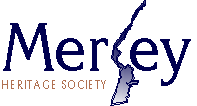 Principles
for Undertaking Archaeological Research
Principles
for Undertaking Archaeological Research
Approved July 2000
Purpose
This document has been created to
govern the activities of the Mersey Heritage Society in the field of archaeology,
and to ensure that investigations are carried out in accordance with the mandate
and guiding principles of the Society, in compliance with the laws of the Province
of Nova Scotia, and with respect for the science of archaeology.
General Principles
Activities
of the Society
Cooperation
with Stakeholders
Guidelines
for Archaeological Investigations
General Principles
- Cultural heritage resources
are non-renewable and form a vital part of all communities.
- Archaeology is necessary to
the growth of historical knowledge and the understanding of cultural history.
- Geographic location alone does
not make a site more or less important than another.
- All artifacts found at a known
or suspected archaeological site belong to the people of Nova Scotia, unless
decided otherwise by the Nova Scotia Museum.
- Archaeological research must
be performed in accordance with provincial legislation.
Activities of the Society
- All archaeological investigations
carried out by the society shall be performed in accordance with the Society's
Guidelines for Archaeological Investigations.
- When an archaeological site
is threatened through development, erosion, re-zoning, sale, or other forces,
the Society will evaluate the risk to, and the importance of, the site as
an archaeological resource. Based on this evaluation, the Society shall decide
what action, if any, is appropriate. Actions may include any or all of the
following:
- providing information to
the general public regarding the site;
- seek designation of the
site under the Special Places Act;
- appeal to the Region of
Queens Municipality and/or the Government of Nova Scotia for assistance;
- legal action against the
developer; or
- acquisition of the property.
- When deemed necessary, the Society
may retain, or have retained on its behalf, cultural resource professionals
to assist with, or lead, archaeological research.
- From time to time, real property
may be acquired by the Society as a means to protect an archaeological site.
It shall not be the goal of the Society to accumulate real property. An appropriate
means of disposal shall be actively sought for any real property acquired
for the sole purpose of protection.
Cooperation with Stakeholders
- The Society shall endeavor to
work with other organizations, such as the Nova Scotia Archaeology Society,
the Queens County Museum, and the Nova Scotia Museum, to advance archaeological
research in Queens County.
- Governments have a responsibility
to protect, promote and support the investigation of cultural resources.
- The Region of Queens Municipality
has a responsibility to manage heritage resources located on municipal lands.
- The Nova Scotia Museum and Parks
Canada have a responsibility to investigate and protect sites under their
control. The Society will not undertake investigations at sites under the
control of these entities.
Guidelines for
Archaeological Investigations
- The site must be of significant
historical or cultural importance.
- The primary intent of the goals
of the proposed investigation must be to increase the breadth of historical
or cultural knowledge, or the understanding thereof.
- A reasonable level of research
shall be performed before the site is selected for investigation by the society.
- Stakeholders in the site must
be informed of, and not opposed to, the investigation. Stakeholders include
ethnic, cultural, professional, family, and community groups.
- The site must be located on
a property to which the society has legal access, and which is likely to remain
legally accessible for the duration of the project.
- Reasonable efforts must be made
to protect the site from vandalism and looting.
- When deemed necessary by the
board of directors, the Society shall solicit assistance from cultural resource
professionals to advise the Society on matters related to archaeological sites.
- Results of all archaeological
investigations will be made public with a particular effort to inform the
relevant stakeholder groups.
Back to Archaeology
Back to Main Page
 Principles
for Undertaking Archaeological Research
Principles
for Undertaking Archaeological Research Principles
for Undertaking Archaeological Research
Principles
for Undertaking Archaeological Research